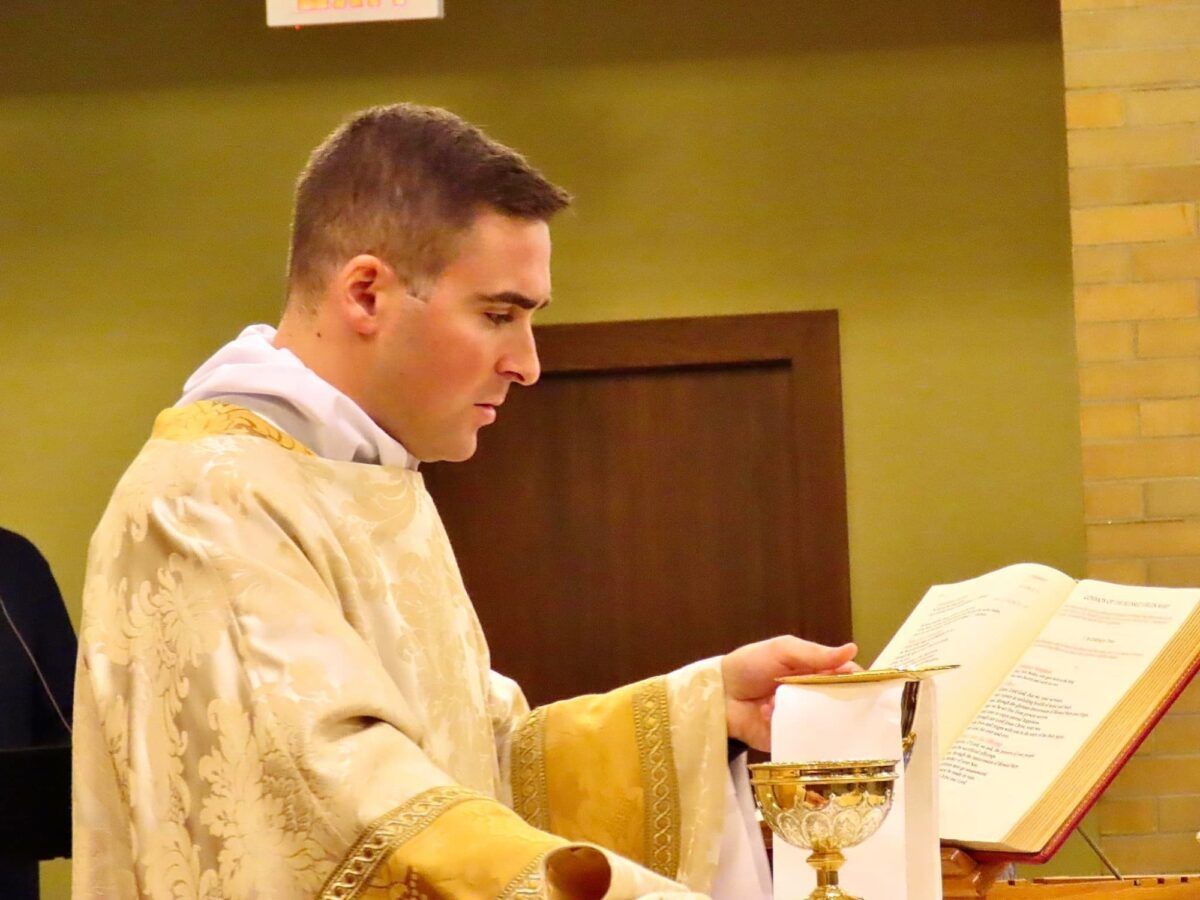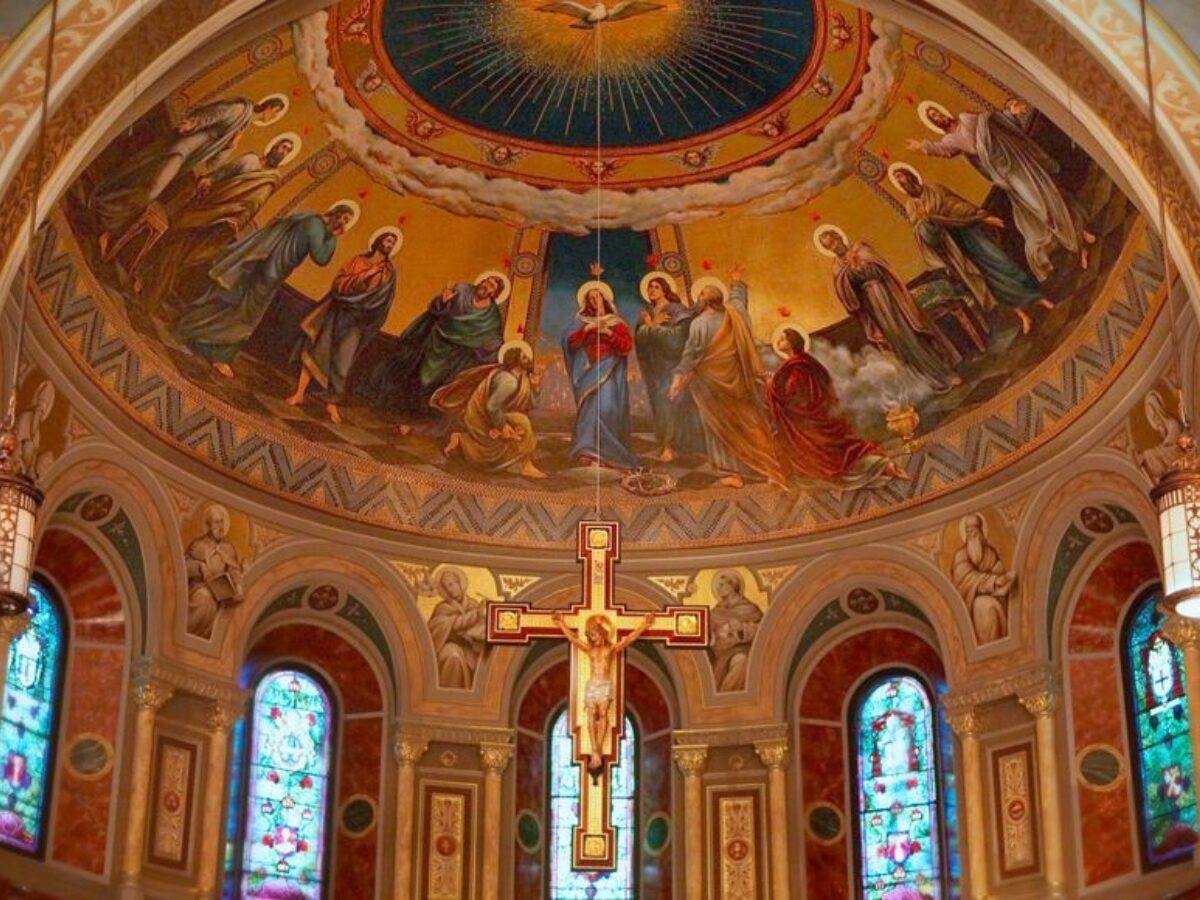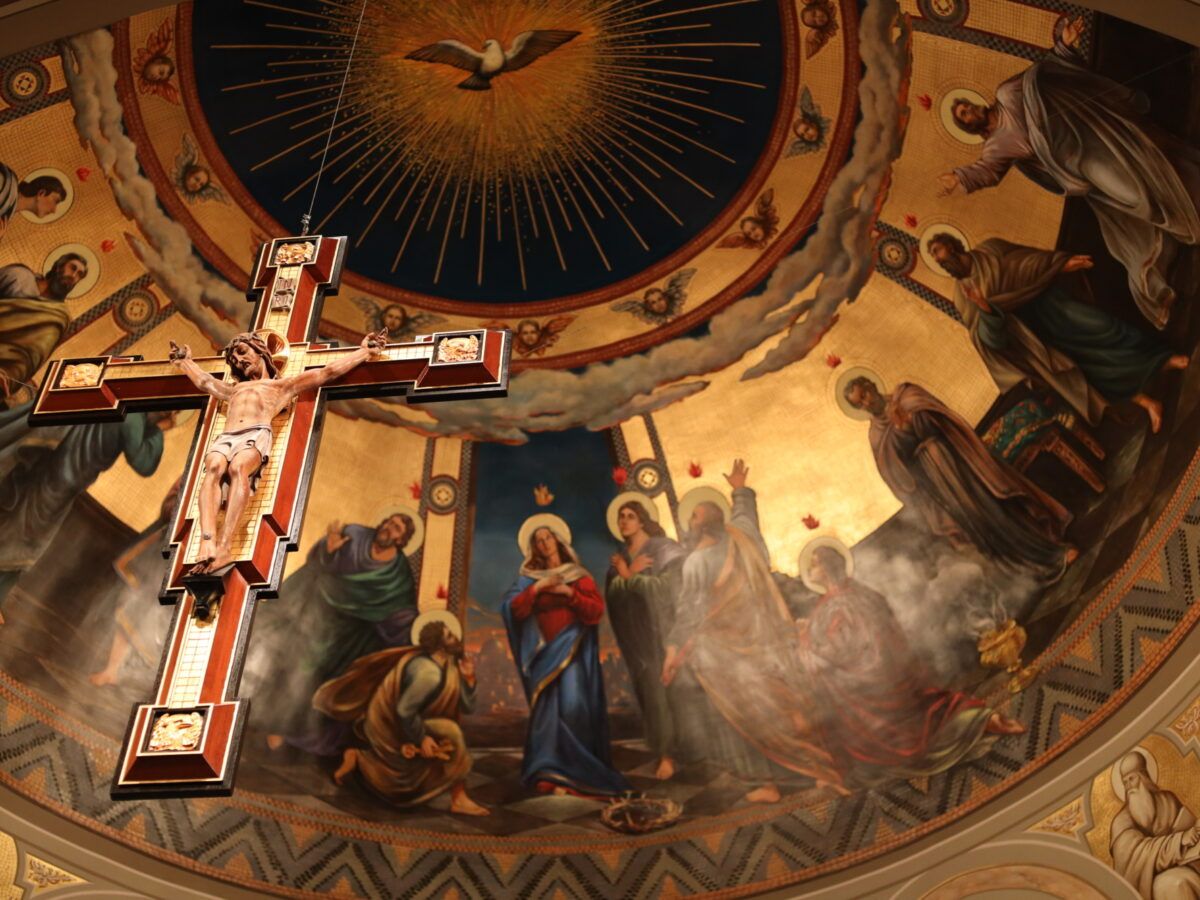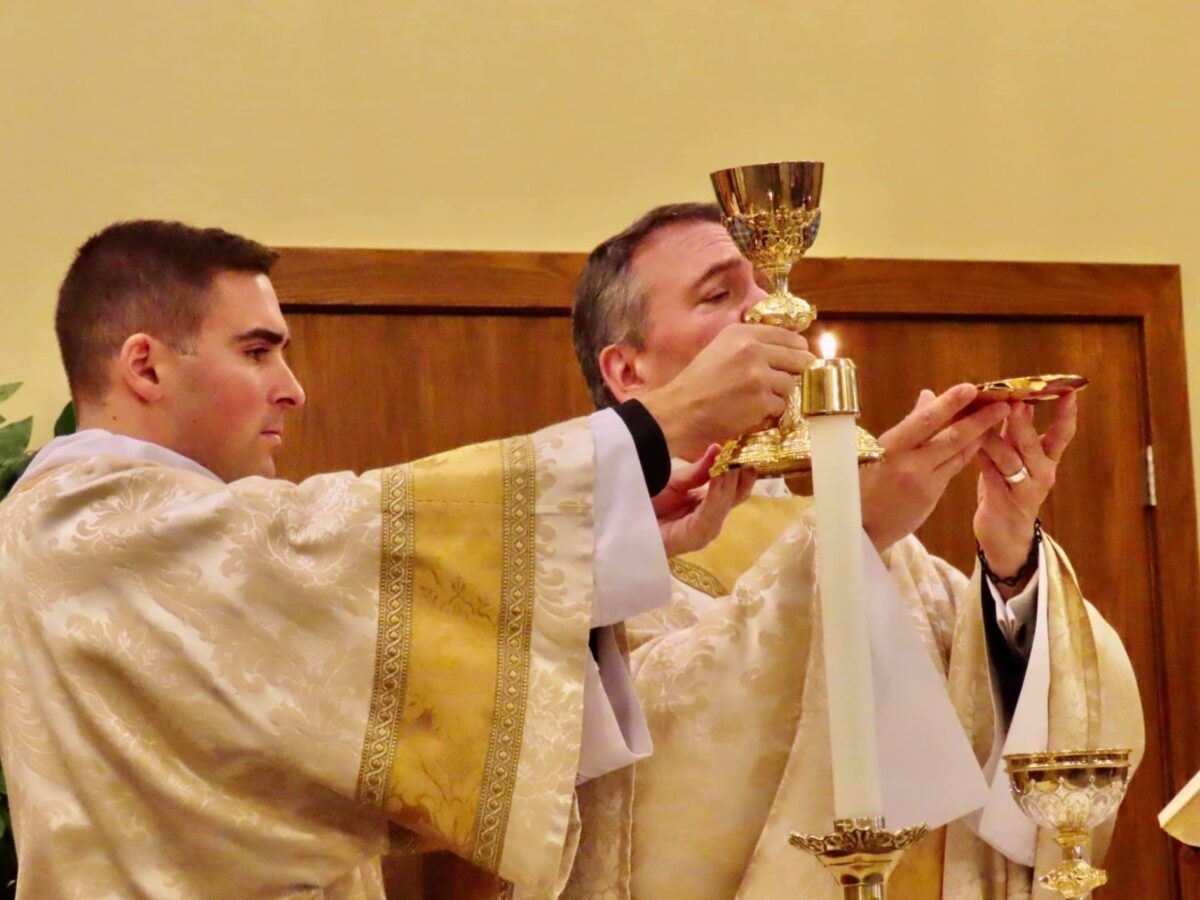While I greatly look forward to serving the Church in all that I will do as a deacon, I’m most looking forward to three things in particular: preaching, baptizing, and assisting the priest at the altar during the Holy Sacrifice of the Mass. I first look forward to praying with the Sunday readings and being guided by the Holy Spirit in preparing homilies and preaching to the parishioners of St. Paul’s in Cambridge where I am assigned. Preaching is one of the most important things a deacon can do because the pulpit is the most prominent place where we can encourage the faithful in their friendship with Jesus Christ and teach them the truths of the Catholic Church. I also look forward to ministering at baptisms, as it is the sacrament that first unites us to Christ and His Church. Baptism makes us dwelling places for the Holy Spirit, it infuses within us the theological virtues of faith, hope and charity, and it makes us adopted children of God. Ultimately, baptism brings us into the life of the Church and makes salvation possible. To have Jesus Christ work through me as a minister of this great sacrament is something I greatly look forward to. And thirdly, I look forward to serving at the altar during Mass. To help prepare the sacrifice of the Eucharist, to be right there and stand by the priest at the altar is another step toward the priesthood of Jesus Christ. The coming months as a deacon is all part of my formation to the priesthood, which ultimately is what I’m most looking forward to.




I graduated from Boston University in 2013, and I recently went back to give a talk at the school’s Catholic Center, a place where I prayerfully came to know my vocation to the priesthood. The subject of my talk was Divine Revelation and the relationship of Sacred Scripture, Sacred Tradition, and the Church. The very next morning I was praying in the chapel at St. John’s Seminary, and in my prayer, I recognized that the beauty of our chapel contained a visual summary of my talk. In the image of Pentecost in the apse, we see the Holy Spirit descending upon Mary and the Apostles, who are pictured with tongues of fire above their heads, representing the gift of the Holy Spirit. This symbolizes Divine Revelation entrusted to the Peter, the first Pope, and the Apostles, the first bishops. Together, the Pope and the bishops make up the Magisterium, the teaching office of the Church. Below the Apostles, we see the Doctors of the Church, including St. Augustine and St. Thomas Aquinas, who were interpreting Sacred Scripture and handing on Sacred Tradition. Below them we see seven green stained-glass windows, each one with an image representing the Seven Sacraments, all of which make up the sacramental life of the Church. The Sacraments are rooted in Sacred Scripture, but they are passed on through time by Sacred Tradition. Fittingly, above each sacrament, is an image of a coats-of-arms of five bishops of Boston and two popes. This symbolizes the role of the Church, and that is that in the Magisterium, the pope and the bishops protect, preserve, and hand on Sacred Scripture and Sacred Tradition from generation to generation. All of this culminates in what we see in the middle of the sanctuary, and that is the altar, where for the last two thousand years, Christ’s sacrifice is renewed and memorialized in the Holy Eucharist. Directly above the altar is the Cross, which is to remind us that Christ’s sacrifice is made present in the Holy Eucharist. In my talk I quoted Saint John Chrysostom who said, “Everything in the divine Scriptures is clear and straightforward; they inform us about all that is necessary.” While I was reflecting upon all of this in the chapel, I realized that I was gazing upon all that Scripture informs us about and is necessary for our salvation, that is, the Holy Spirit, the Apostles, our Blessed Mother, the Church, the Doctors of the Church, the Sacraments, and our worship of God in Holy Mass. All of this is to say, that we need all three: Sacred Scripture, Sacred Tradition, and the Catholic Church, all of which are at the service of our salvation!
Dcn. Robert LeBlanc is a Seminarian with the Archdiocese of Boston. He was ordained a Transitional Deacon on Saturday, October 24, 2020.

